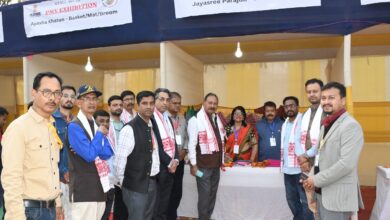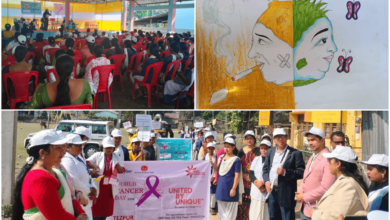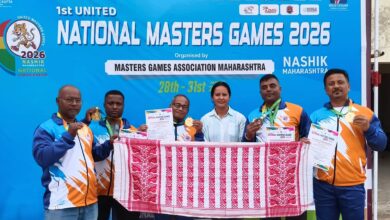Opportunities in Forensic Analysis discussed at Tezpur University Conference

Tezpur University (TU) organised a two-day International Conference titled
“SusChemHeca-2024, i.e on Current Trends of Research in Chemistry Towards
Sustainability, Health Care, and Forensic Analysis from (March 14, 2024). The
conference brought together leading minds from academia, industry, and research
institutions across the globe. Noted academician present on the occasion was- Prof Peizhou Li from Shandong University, China. Prof Li joined online and delivered the keynote lecture 1. Speaking on the occasion, Prof Shambhu Nath Singh, Vice Chancellor, TU said that United Nations’ Sustainable Development Goals (SDGs) are a collection of 17 interlinked global goals designed to be a blueprint to achieve a better and more sustainable future for
everyone. Therefore, it is the duty of the Higher Educational Institutes to work in the field
of Sustainability to create a better world.
Delivering the welcome address, Prof Panchanan Puzari emphasised the importance of
studying Forensic analysis. “Forensic analysis plays a fundamental role in criminal
investigations and legal proceedings. It is often employed for the identification and
individualization of persons involved in criminal activities”, Prof Puzari explained the
importance.

Prof Robin K. Dutta, Dean, School of Science said that the conference will feature a diverse
array of topics such as, Pharmaceutical chemistry, drug discovery Analytical techniques
in forensic science and Nanotechnology for healthcare applications etc.
Joining online, Prof Li urged the academicians and researcher in the field of chemistry to
tackle some of the most pressing challenges facing the world today. “Through
collaboration and knowledge exchange, we aim to catalyze transformative innovations that will contribute to sustainability, improved healthcare outcomes, and advancements
in forensic analysis.” Prof Li said.
The Conference was graced by speakers from various eminent international institutions
like University of Alabama, USA; Prairie Research Institute, USA; Kyushu University,
Japan; KU Leuven, Belgium









